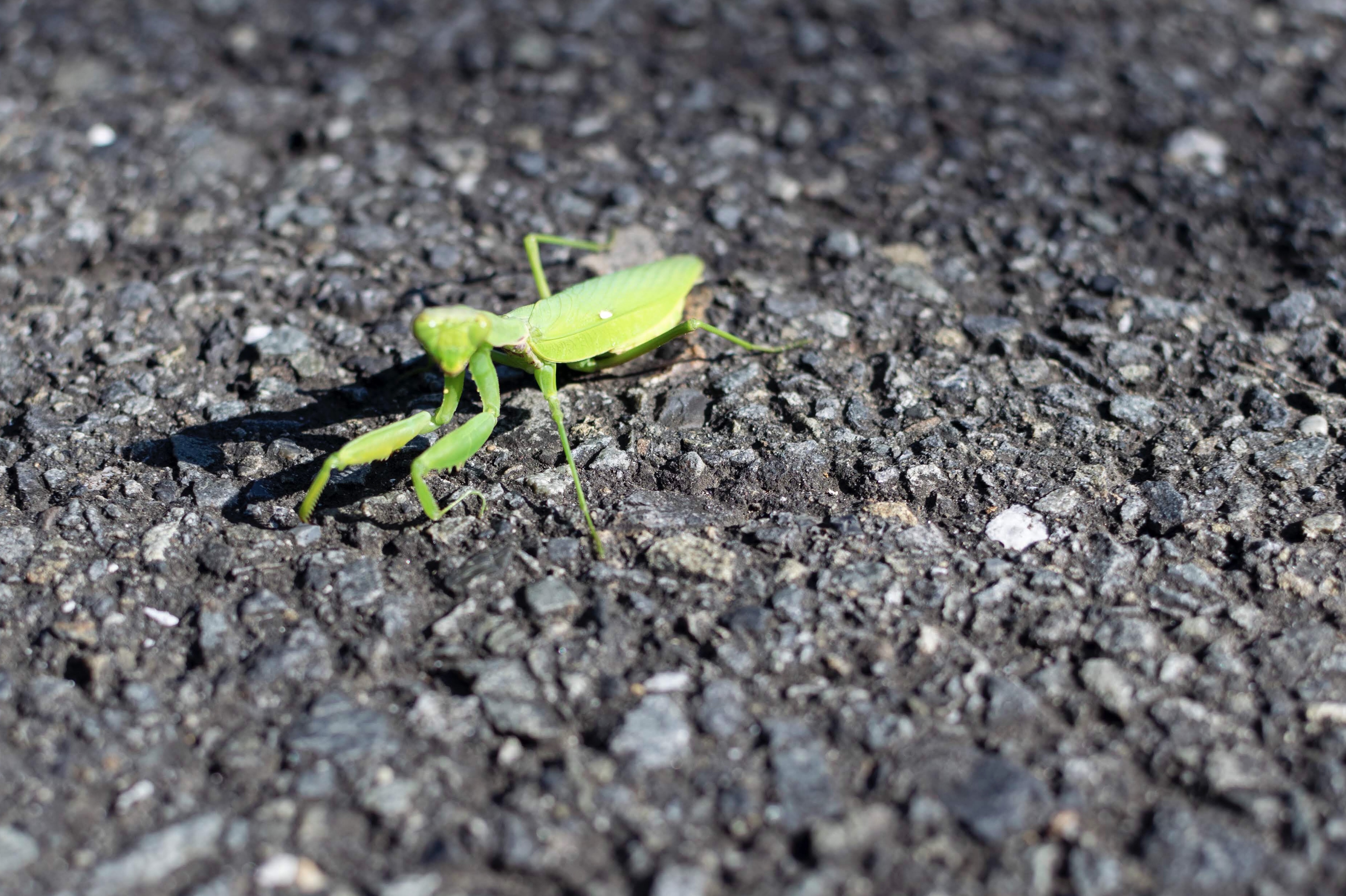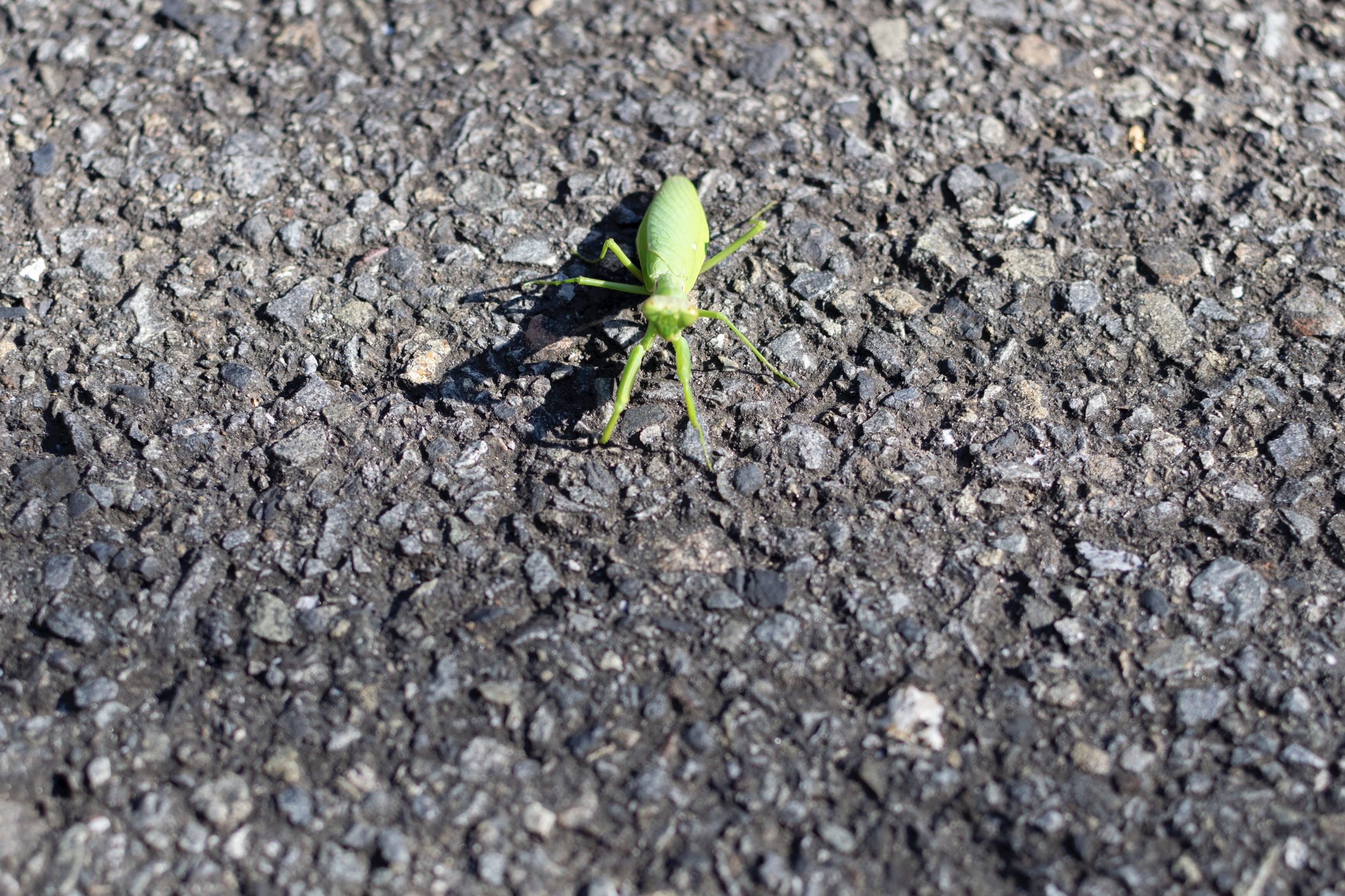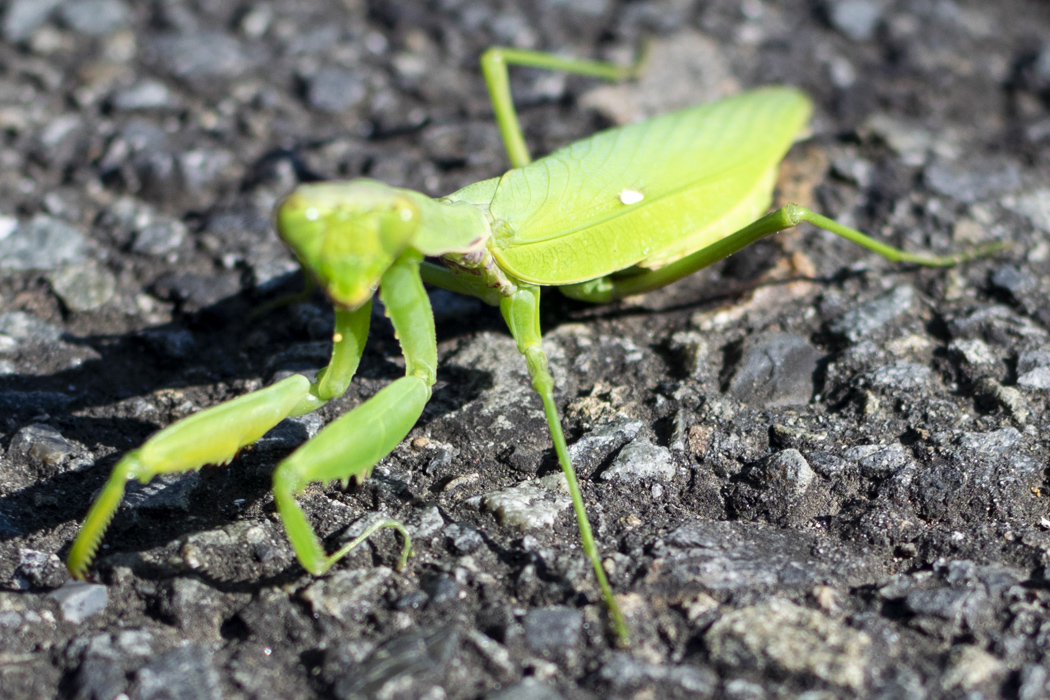
Indo-Pacific mantis
Can be seen until late autumn. It is characterized by the white stripes on the forewings.
| Scientific name | Hierodula patellifera |
| English name | Indo-Pacific mantis |
| Japanese name | 腹広蟷螂 |
| Classification | Insecta |
| Classification details | Mantodea Mantidae |
| Full length | 45-71mm. |
| Distribution | Kanto and south (domestic) |
Characteristics
This praying mantis has a wider belly than other praying mantises found in Japan. It is characterized by a white patch on the forewings and yellow warts on the base of the front legs.
Common on grasslands and trees, preying on other arthropods. Slightly more difficult to find than the mantis or mantis. It is best to look for it mainly in grassy areas and hedges.
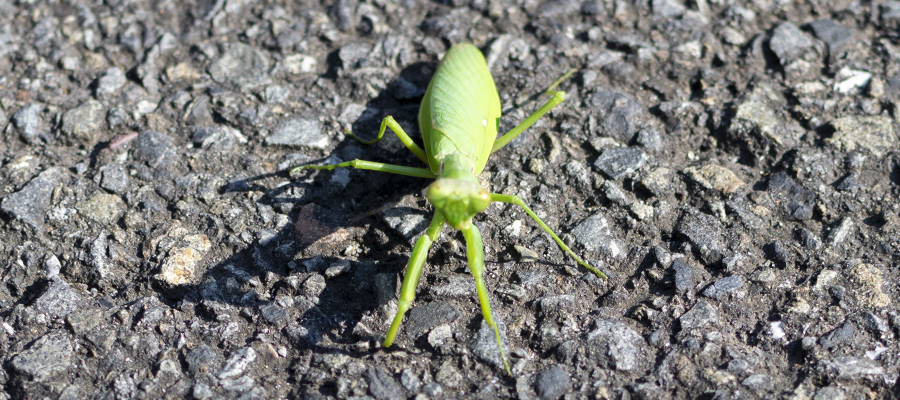
Ecology
The total length is 45-65 mm for males and 53-71 mm for females, with females being larger.
Lays cylindrical egg sacs on trees. The egg sac is round, hard and glossy. It can be seen from August to November south of Honshu.
Habitat
I found it on the side of the road in a residential area. The grass is cut nearby, and it may have escaped from there. When I approached it, it fled at a brisk pace towards the hedge of a human house. It is often seen in bushes and hedges in parks from summer to autumn.
Pictures
Introducing a picture of Indo-Pacific mantis.

Picture book
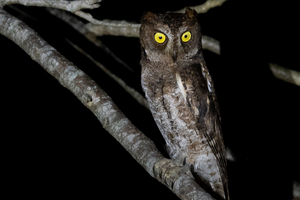
Ryukyu scops owl
Insect-eaten patterns blending in with the trees.......ead more.

Yellow-throated bunting
Bright yellow throat......ead more.

Two-lined monocle bream
Two lines running above the eye.......ead more.
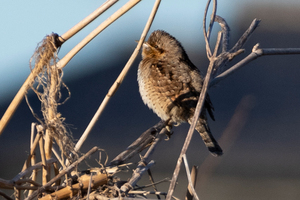
Eurasian wrynecki
Eating ants on rotting wood.......ead more.

Japanese Pygmy Woodpecker
A small woodpecker that you can meet up close.......ead more.
